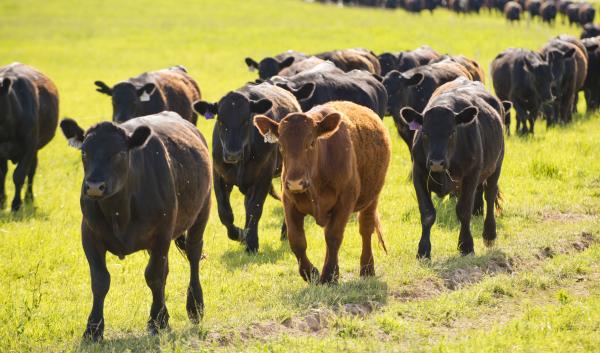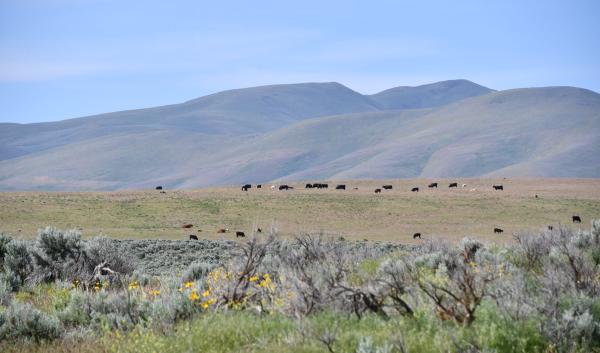Ranchers, landowners, and land managers in the Northwest are accustomed to adapting to changes in weather, but with climate change they may need to consider climate-smart practices to maintain healthy grazing lands. Warmer winters and springs can result in less snow and more rain, reducing water flow in rivers and streams during summer and affecting irrigation. Higher temperatures and changes to precipitation can lead to drought, heat stress to livestock and wildlife, increased pests and disease, and increased wildfires. There are management actions that can reduce the negative impacts of climate change on Northwest grazing lands. Below are resources providing additional information on some of these management actions.
-
Online Tools for Northwest Federal Rangeland Managers

This collection of online tools provides vegetation production and other near real-time information for Northwest federal rangeland management.
-
Virtual Fencing Excludes Cattle from Burned Areas in Sagebrush Steppe

This adaptation in action profile highlights the exclusion of cattle from a burned area within a sagebrush steppe pasture using virtual fencing technology.
-
Targeted Grazing for Wildfire Fuel Breaks

Adaptation in Action: Targeted cattle grazing has been used to create fuel breaks for wildfire containment in the Great Basin.
-
Virtual Fencing: A Climate Adaptation Strategy

Virtual fencing allows ranchers to move livestock without physical fences and could be an effective climate adaptation strategy.
-
Incised Stream Restoration in the Western U.S.
Stream erosion challenges and beaver-related restoration information for the western US.
-
Building Water Resilience in the Northwest Through Rangeland Management

Information about how to avoid and cope with current and expected changes to water resources and rangeland health.
-
Synthesis of Grazing and Water Management Strategies in the Great Basin

Strategies for managing water and grazing for climate change adaptation in the Great Basin.
-
Climate Risk Management Practices

A synthesis of key climate change sensitivities and risk management practices for non-forest vegetation, water and infrastructure, and wetlands and riparian areas.
-
Case Studies of Rangeland Resilience in the Northwest

The case studies provide examples of management actions in use for rangeland climate adaptation.
-
Soil Health Management to Reduce Climate and Weather Risks in the Northwest

An overview of management actions that can help to improve soil health in the region.
-
Northwest Ranching - Adapting to Climate Change

Highlighting a few challenges ranching operations will face in the Northwest with climate change.

